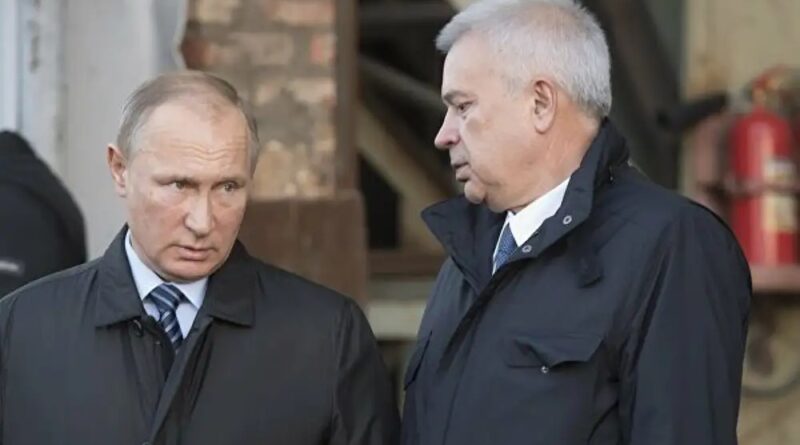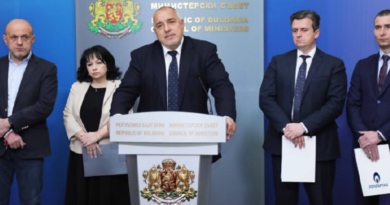Kremlin’s Plan to Consolidate Russian Oil Giants
Rumors have been circulating for months in Moscow about President Putin’s intention to merge Russia’s major oil exporters—Rosneft, Gazpromneft, and potentially Rosneftegaz and the private Lukoil—into a single state-owned oil giant. This speculation was recently substantiated by articles in The Wall Street Journal and Bloomberg, suggesting that a decree for this merger might be in the pipeline. According to reports, this development could materialize as early as December, supported by additional “leaks” hinting at Kremlin discussions on the subject.
Budget Pressures and Escalating Security Costs
The push for consolidation partly reflects Russia’s fiscal challenges for 2025, particularly the budget strain caused by a sharp increase in defense and security spending. National security spending, including the Ministry of Defense (due to the ongoing war in Ukraine), the FSB, the SVR, the RosGuard and the Interior Ministry, are expected to consume 41% of the budget—more than double the social programs allocation. Historically, social spending had matched or exceeded defense expenditures until 2024, but this shift signals the Kremlin’s prioritization of security amid growing financial pressures.
Meanwhile, Finance Minister Anton Siluanov has predicted that oil and gas revenues will contribute only 27% to the 2025 national budget, even this figure being somewhat optimistic. Despite claims of reduced reliance on oil and gas income and an increased share of domestic value-added revenue, especially in defense, shrinking energy and arms sales highlight the budget’s vulnerability and the potential risk of social instability.
Increased Dependence on Oil Revenues
With Gazprom’s revenues plummeting due to lost European markets, the budget has become increasingly dependent on oil exports. Russia’s role in OPEC+ allows it to influence global oil prices, but the proposed merger aims to create a state-controlled giant—second only to Saudi Aramco—that would further strengthen Russia’s influence on the global oil market. In addition to stabilizing oil prices, such an entity would allow Putin to negotiate better deals with key importers like China and India and manage sophisticated channels to evade sanctions.
Geopolitical Concerns and Trump’s Potential Impact
The recent U.S. presidential victory of Donald Trump, who champions a “Drill, baby, drill” policy, is causing concern in Moscow. Under Trump’s leadership, it is expected that U.S. oil production will surpass 13 million barrels per day, positioning the United States as a major market influencer. Moscow is especially wary of Trump’s close ties with Saudi Arabia, recalling the 1980s when a Saudi-U.S. agreement to lower oil prices critically weakened the Soviet economy, contributing to its collapse. Even a modicum of cooperation between Trump and the Saudis could put pressure on the Kremlin if oil prices drop below $50 per barrel, potentially triggering social unrest in Russia.
Internal Opposition and Kremlin Messaging Strategies
The rumors surrounding the mega merger plan also reflect internal Kremlin divisions. Information leaks could represent resistance from factions opposed to the consolidation plan, aiming to influence market reactions and disrupt the process. This internal debate suggests ongoing clashes within the Kremlin, with different power blocs pushing for their preferred outcomes. By carefully managing public and market perceptions, the Kremlin appears to be preparing stakeholders for the possibility of a merger, minimizing potential disruptions.
Lukoil’s Role and Risk of Nationalization
Lukoil’s role in this proposed consolidation raises additional complications. Although the shareholders may resist, Russia’s political landscape limits their ability to challenge state control. Past incidents, where high-ranking business figures faced pressure, or worse, illustrate the risks that shareholders and executives face in Putin’s Russia. Recently, Lukoil’s majority owner and president, Vagit Alekperov, stepped down in response to sanctions and Kremlin pressure. Afterward, changes to the company’s charter minimized shareholder influence, consolidating control under a CEO aligned with Putin.
International Implications and Asset Divestitures
The nationalization of Lukoil could accelerate the divestment of its international assets to avoid punitive sanctions. In Bulgaria and Romania, Lukoil’s asset sales are reportedly progressing with little transparency for its shareholders, suggesting that a redistribution of rights between Kremlin authorities and shareholders is underway. Leaked details of the sales, reported by the Financial Times and other outlets, and a subsequent denial by Litasco, may reflect internal power struggles within Lukoil and Putin’s circle, highlighting tensions over the formation of a state oil giant.
The consolidation of Russia’s oil sector into a state-controlled giant reflects the Kremlin’s need to secure revenue amid declining energy sales and an increasingly strained budget. This move would bolster Russia’s position in global oil markets and provide it with greater leverage against Western sanctions. However, the plan is not riskless and faces significant internal resistance, as factions within the Kremlin debate its implications. With potential geopolitical shifts on the horizon, particularly with Trump’s likely oil-friendly administration, the Kremlin is determined to prepare for economic pressures and potential global rivalry.




